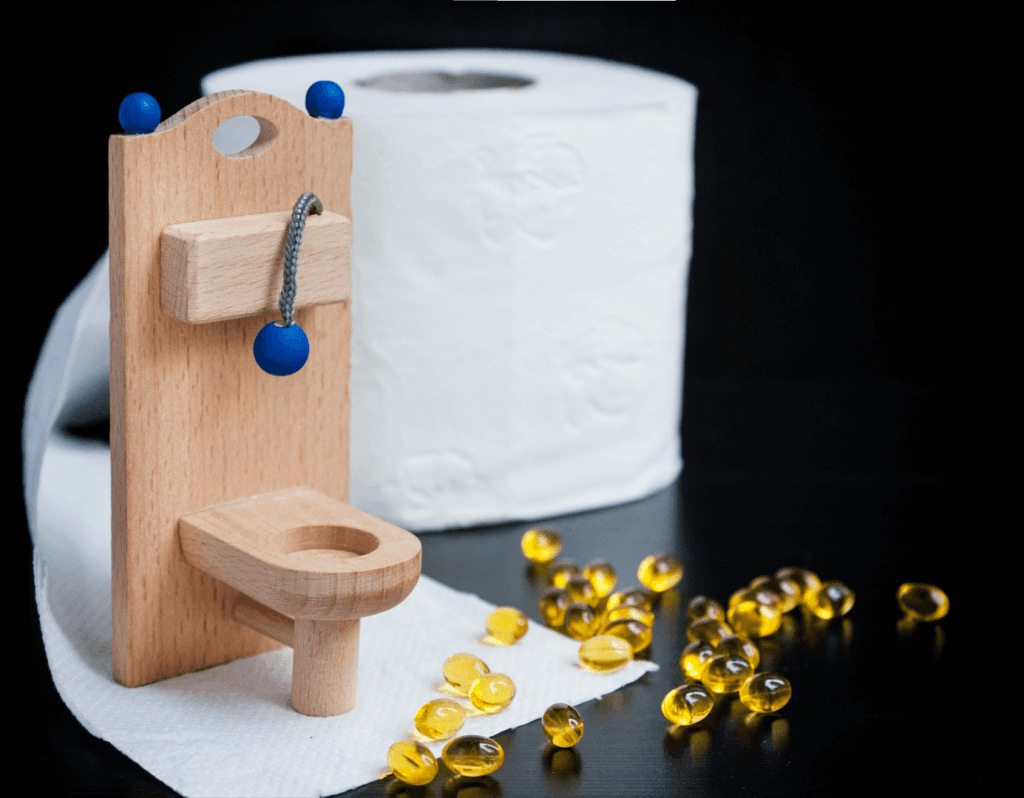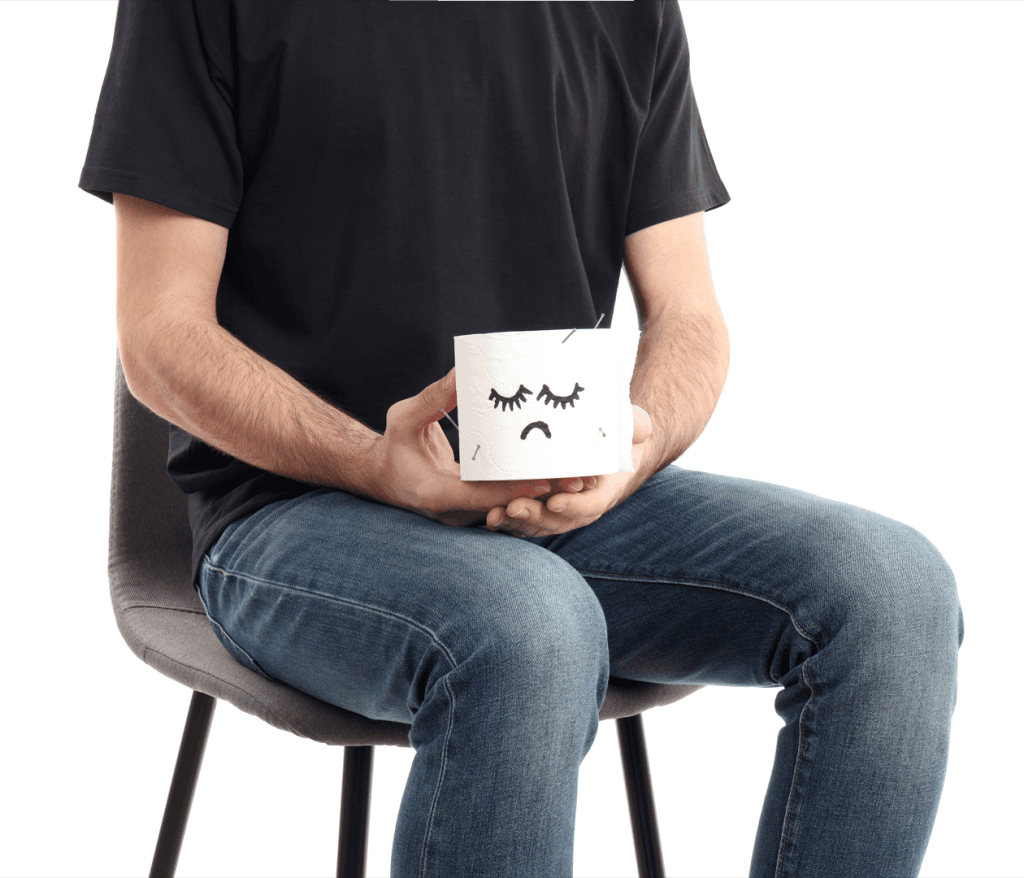As the holiday season approaches, you’re likely bombarded with tips and tricks to keep your health in check amidst the festivities, but let’s cut through the noise when it comes to anal fissures. We all are certain about some anal fissures myths, aren’t we?
You’ve probably heard a friend of a friend swear by a certain home remedy, or perhaps you’ve stumbled upon alarming online forums that link every symptom to a dire prognosis. It’s crucial to separate the wheat from the chaff—understanding what truly matters for your well-being.
You might be wondering if that extra serving of pudding could exacerbate an existing condition or if the stress of holiday preparations can actually bring about such an ailment. While you navigate through the sea of holiday advice, remember that some truths can be less obvious than the myths they’re shrouded in.
Keep an open mind as we’re about to uncover the realities of anal fissures that could save you from unnecessary worry or, conversely, prompt you to seek the right kind of help.
Anal Fissures Myths Vs Facts: Highlights
- Severe pain during bowel movements and bleeding are common symptoms of anal fissures during the holiday season.
- Rich, heavy foods and sudden dietary changes can contribute to constipation and disrupt digestion, leading to anal fissures.
- Non-surgical treatments like high-fiber diet and stool softeners are effective in treating anal fissures, but medical treatments and surgery may be required for chronic cases.
- Myth: Surgery for anal fissures is risky and ineffective. Reality: Lateral internal sphincterotomy is a safe and effective surgical option with a low risk of incontinence in skilled surgeons.

Identifying Anal Fissures
If you’re experiencing severe pain during bowel movements or notice bleeding, you may be dealing with an anal fissure, a common yet often misunderstood condition.
An anal fissure is a small tear in the lining of your lower rectum, which can cause acute anal pain and bleeding. Typically, this discomfort is most intense during and immediately following bowel movements.
Recognize the signs: the pain is often sharp and may be accompanied by bright red blood on your toilet paper or in the toilet bowl. You may also experience a fear of bowel movements due to the anticipated pain, yet find relief between them.
Factors contributing to anal fissures include trauma to the anus from hard and dry bowel movements, constipation, or straining during bowel movements. Additionally, loose stools and anal sphincter spasms can exacerbate your condition.
It’s essential to address anal fissures promptly. A high-fiber diet, stool softeners, and sitz baths can provide initial relief. Topical anesthetics, nitroglycerin ointment, or calcium channel blockers may be recommended for persistent symptoms.
Holiday Diet Misconceptions
Amid the festive cheer, it’s easy to fall prey to the myth that holiday meals are replete with fiber, overlooking the necessity of consciously incorporating high-fiber foods into your anal fissure diet for optimal digestive health. To prevent anal fissures and rectal bleeding, it’s crucial to avoid foods that cause constipation.
This season, ensure you’re supporting your digestive system by understanding these key facts:
- Rich, Heavy FoodsHigh-fat, low-fiber holiday dishes can contribute to constipation, necessitating the use of stool softeners.
- Water is EssentialAlcoholic and caffeinated beverages may take center stage, but they can dehydrate you. Increase water intake to maintain stool consistency.
- Insoluble FiberNecessary to add bulk to stool; insoluble fiber is often missing from festive plates.
- Dietary ChangesSudden indulgence in unfamiliar foods can disrupt your regular digestive rhythm.
- Balance is KeyModeration and inclusion of high-fiber options alongside traditional recipes can help prevent constipation and protect against anal fissures.
Treatment Truths Revealed
While most anal fissures are treatable with non-surgical methods, understanding the efficacy of various treatments is essential for effective management and recovery. You’re not alone in this; anal fissures are common, and there’s a community that shares your experience.
Initially, treating anal fissures involves simple measures like a high-fiber diet, stool softeners, and topical anesthetics to alleviate pain. These remedies often yield significant relief.
For persistent or chronic anal fissures, medical treatment may include calcium channel blockers that help relax the internal anal sphincter, reducing pain and promoting healing.
When these measures aren’t sufficient, more advanced interventions come into play. Botulinum toxin (Botox) injection is one such option, offering relief in over half of the cases by temporarily paralyzing the internal anal sphincter, thus diminishing spasms and allowing the fissure to heal.
If your condition is refractory to these treatments, surgery such as lateral internal sphincterotomy may be recommended.
It boasts a success rate of over 90%, with most patients experiencing a swift decrease in acute pain and a return to normal activities within days. However, full recovery takes about 6 to 12 weeks.
Surgery: Myths and Realities
Having explored non-surgical treatments, let’s now examine the realities and dispel common myths surrounding anal fissure surgery. You’re part of a community that values clear information, so it’s vital to understand that surgery to treat chronic fissures is both effective and safe when performed correctly.
A fissure is a small tear that may not heal with creams and lifestyle changes, but surgery offers a definitive solution. Here are the facts:
- Surgical sphincterotomy, specifically lateral internal sphincterotomy, directly addresses the problem by relieving the excess muscle tone causing your discomfort.
- The procedure is usually done under local anesthesia with sedation, and you can expect to go home the same day.
- Most patients with anal fissures respond to conservative measures, but when these fail, surgery is the next step to treat chronic cases.
- Considering the risks and benefits, it’s encouraging to know that incontinence is a rare complication when the surgery is performed by a skilled surgeon.
- Recovery typically spans 6-12 weeks, yet many return to their normal routines within days.
Preventing Recurrence
To effectively prevent the recurrence of anal fissures, it’s crucial to adopt a high-fiber diet and ensure proper hydration. Integrating a variety of fiber-rich foods into your daily routine can soften stools and minimize the strain during bowel movements, reducing the risk of fissure development.
Drinking enough water is equally important, as it works in tandem with your high-fiber diet to facilitate smoother bowel movements.
Beyond diet, incorporating sitz baths into your regimen can help prevent fissures by promoting blood flow to the anorectal area, thus aiding in healing and providing pain relief.
Regular exercise not only contributes to overall health but also helps maintain bowel regularity, which is vital in preventing the recurrence of fissures.
If constipation is a persistent issue, over-the-counter laxatives may be beneficial. However, consult with your healthcare provider to find the right balance and avoid overuse, which can exacerbate the problem.
In some cases, your doctor might prescribe medications such as calcium channel blockers to help relax the muscles around the anus, further preventing fissure recurrence.

Final Note From Dr. Rajarshi Mitra
As you navigate the festive tide, remember that while anal fissures are no Herculean trial, they demand respect. Dispel the myths; indulgent feasts needn’t be your downfall if you’re wise.
Should surgery be your chosen path, fear not—this isn’t an odyssey fraught with pain or loss of control. To avert a recurring saga, heed the counsel of professionals.
Arm yourself with knowledge, and you’ll emerge from the holiday season triumphant, unscathed by the specter of fissures.
FAQs
What Should You Not Do With a Fissure?
You shouldn’t ignore symptoms, strain during bowel movements, lift heavy objects, sit for long periods, eat spicy foods, risk dehydration, neglect hygiene, pass hard stools, wipe excessively, or wear tight clothing with a fissure.
Is Coffee Bad for Fissures?
You’re not alone in wondering if your morning cup of Joe worsens fissures. Caffeine impact can trigger dehydration, so balancing coffee with healing foods and plenty of water is crucial for prevention.



















